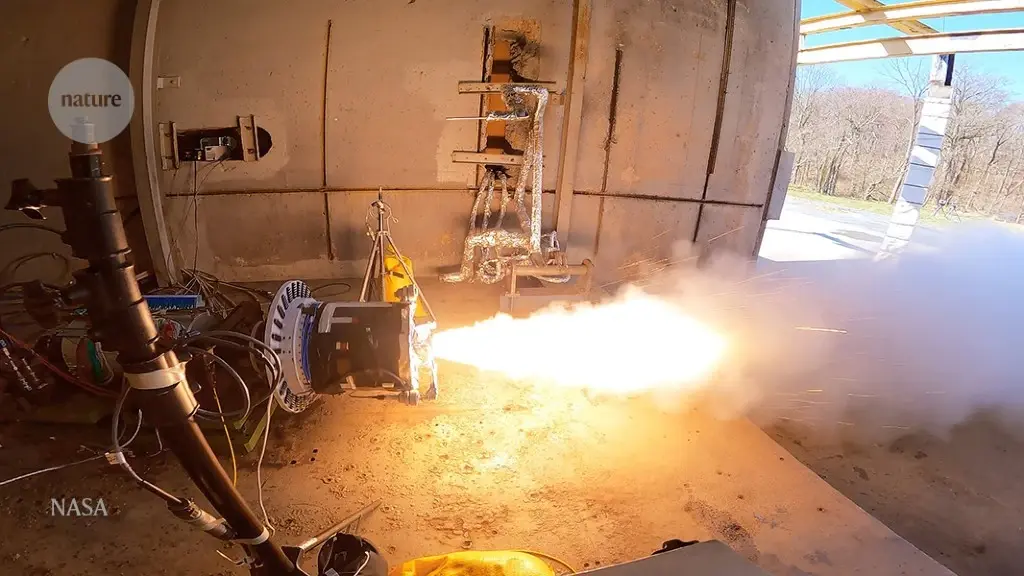Of course it costs an astronomical amount of money! It’s a space mission, what else would it cost?
That’s really not all that much considering the federal budget.
Military spending is over a trillion, right? They could fund this with a rounding error.
How much do we spend killing innocent people abroad every year? We can bring back some fucking rocks thanks
I’m pretty sure that if we, as a specie, stopped wasting money to kill each other, we could give food, shelter, healthcare and education to each of us.
And there would still be enough money left to found this kind of scientific projetcs.
Yes, but game theory says no: The Game Theory Of Military Spending (Economics Explained) [13:58]
Absolutely. But there’s always the risk that that one entity doesn’t switch gears and then they have the strongest military and can fuck everybody up always.
Have they considered USPS flat rate shipping?
Independent reviewers find NASA Mars Sample Return plans are seriously flawed
And, sadly, it might be too late to even salvage any funds by cancelling it.
Moreover, the reviewers said canceling Mars Sample Return would not free up billions of dollars for other planetary science missions.
NASA has had a long string of giant budgetary boondoggles throughout its history. I think there’s something fundamentally broken about how it manages these projects and I don’t know how it can be fixed.
Separation of Congress from budgeting beyond a government wide yay/nay vote might help. As it stands, much like most of the military Nasa is a congressional district jobs program that occasionally outputs something useful more than an actual public service.
You get the output of what you incentivize, and Nasa’s funding incentivizes jobs in key districts no matter how much more efficient it would be to put all their buildings in the small town they own in Florida.
Unfortunately if that was the case then NASA simply wouldn’t get much funding at all.
If it’s too late to free up the budget, then by all means continue the program. But no more long shots like this until we have a solid plan. I love NASA, I love the prospect of getting these things done, but no one nation can do something like a Mars sample collection effectively. It needs to be a planetary effort. And I don’t mean getting an actuator from the UK and a commemorative plaque in 40 languages from Luxembourg or whatever, I mean serious funding. It’s long past time we turn our symbolic collaboration to actual funding, agreeing to match the expenditure with 20 countries as percentage of federal budget or what have you. Like if the EU matched the percentage of our budget (however many billions) from their budget. Now add China, Russia, India, Japan, Australia - even 10mil or however little the percentage would add up to from South africa would help if every moderately big county on Earth did that.
I really don’t think it’s a question of not enough funding. NASA just doesn’t seem to be capable of spending and planning efficiently.
By comparison, the whole cost of SpaceX’s Starship program is estimated to be between $5 and $10 billion. It should be possible to do a far cheaper and more effective sample return with launchers like that available.
They basically aren’t allowed to spend efficiently or else they wouldn’t get funding in the first place. NASA is just an excuse for congressmen to funnel money into their districts. The fact that any science happens along the way is a miracle already.
My abstract for the linked article
NASA’s Perseverance rover has been collecting valuable rock samples from Mars’ Jezero Crater to search for signs of ancient life. An independent report found that NASA’s plan to return these samples to Earth by the late 2020s at a cost of $4 billion is unworkable, and will actually cost between $8-11 billion. While returning the first samples from Mars is scientifically important, the project’s budget has increased as engineers have refined complex mission designs. There are also competing priorities for funding within NASA’s $3.2 billion planetary science budget. The report recommends delaying launches originally planned for 2027-2028, and developing an alternative strategy. If launched by 2030, the revised mission could still cost $8-9.6 billion.
NASA will now reassess plans to determine how to accomplish the strategically and scientifically important goal of returning the first Martian rocks to Earth for detailed study.
This comment was generated by a bot. Send comments and complaints via private message.
Put up a damn Aldrin Cycler already.
Just the send the whole lab there, at least we can keep using it when we eventually reach mars










